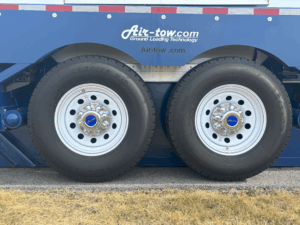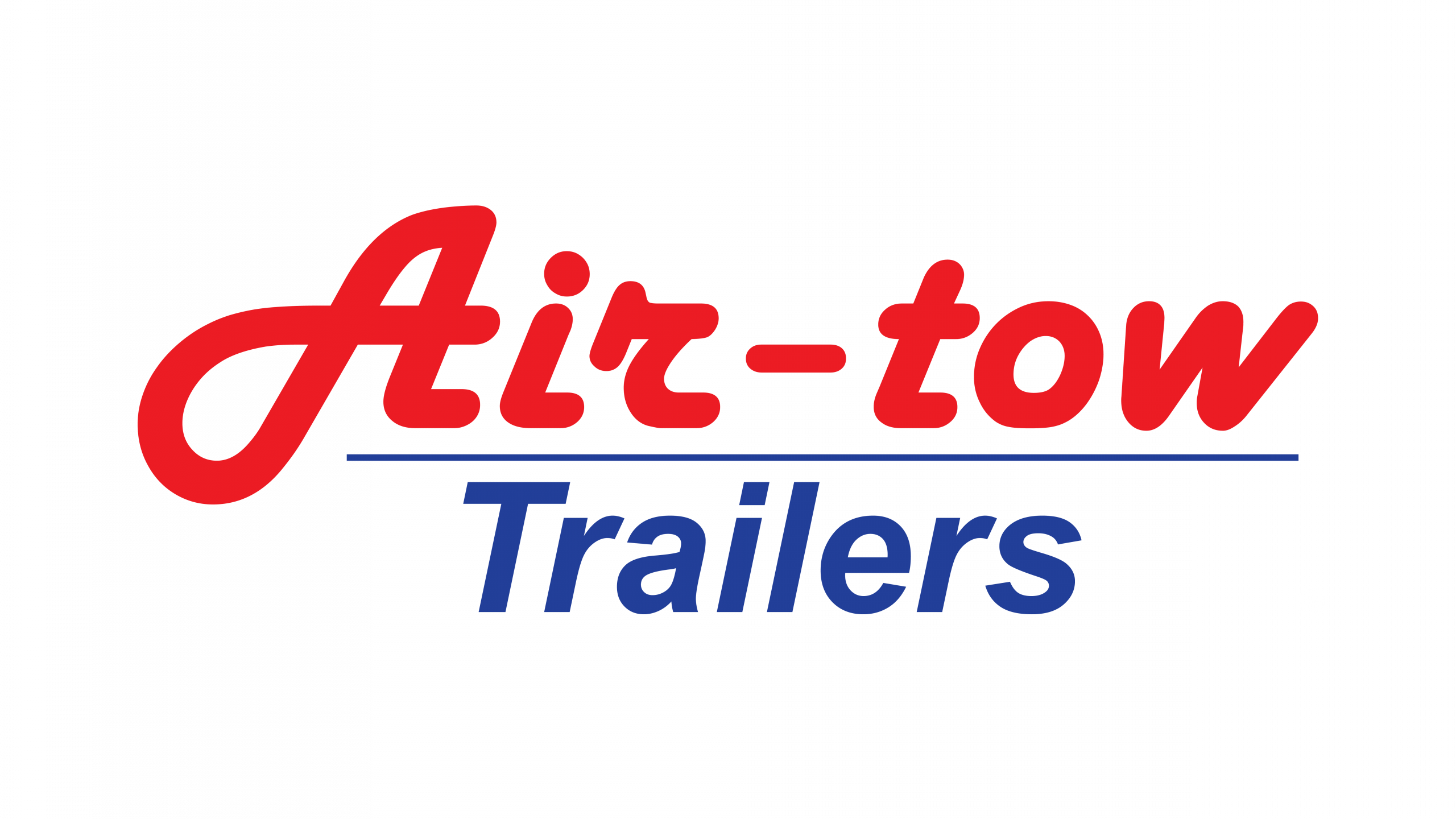Why Summer Is Prime Time for Tire Blowouts — and How to Prevent Them
- May 22, 2025
- Uncategorized
- Posted by admin
- Leave your thoughts
Summer brings increased demand for transportation, whether for business deliveries, job site logistics, or seasonal moves. It also escalates the chance of tire blowouts, especially for trailers and tow vehicles operating under heavy loads and high temperatures.
Understanding why summer is tough on tires can help prevent delays, reduce maintenance costs, and keep your operations running smoothly.
Why Blowouts Are More Common in Summer
- Elevated Temperatures Increase Tire Pressure
As outside temperatures climb, the air inside tires expands. On average, tire pressure increases by about 1 PSI for every 10°F rise in temperature. Overinflation can make tires more vulnerable to damage from road hazards and reduce the overall contact patch, compromising stability.
- More Road Debris and Construction Zones
Summer is the peak season for road construction. Loose gravel, nails, screws, and other debris are more likely to be found on job sites, delivery routes, and highways. These materials pose a significant risk of puncture, especially for trailers frequently entering and exiting work zones.
- Increased Load and Usage
During the summer, trailers are often used more frequently and carry heavier loads, whether transporting equipment, materials, or commercial goods. Extended trips and full payloads increase tire stress, leading to faster wear and heat buildup, which can result in a tire blowing out.
How to Prevent Tire Blowouts During the Summer
- Maintain Proper Tire Pressure
Check tire pressure at least weekly and always before a long haul. Use a reliable gauge and refer to the manufacturer’s recommended PSI — this applies to both tow vehicles and trailers. Proper inflation reduces heat buildup and improves overall safety and efficiency.
- Inspect Tires Regularly
Conduct visual inspections before every trip. Look for signs of wear, cracking, bulging, or embedded debris. Replace tires promptly if they show low tread or signs of aging. Checking tires is essential for trailers used in commercial applications, where tire reliability directly impacts productivity.
- Don’t Overlook the Spare
Ensure that your spare tire is in good condition and properly inflated. Verify that you have the tools required for a tire change, especially if you operate in remote or high-traffic areas.
- Schedule Regular Tire Rotation and Alignment
Routine tire rotation and proper wheel alignment help extend the life of your tires and improve handling. This maintenance is essential for trailers that see daily or heavy-duty use.
- Consider a Tire Pressure Monitoring System (TPMS)
For operators who regularly haul valuable or sensitive cargo, investing in a TPMS can provide real-time alerts if a tire begins to lose pressure. This early warning can prevent costly damage and avoid roadside breakdowns.
- Monitor Load Distribution and Travel Conditions
Be sure to load the trailer within its rated capacity and distribute the weight evenly. On longer trips or in extremely hot weather, plan rest periods to allow tires to cool and reduce the risk of failure.

Trailer Tire Maintenance Matters
Tires on trailers often receive less attention than those on tow vehicles, yet they endure the same if not more, stress. Air-tow engineers its trailers for durability and smooth transport, but you must perform regular tire maintenance to ensure optimal performance and safety on the road. A thorough tire check in your daily or pre-trip inspection routine helps minimize unexpected issues and supports safe, reliable operation, especially during the high-demand summer months.
Final Thoughts
Tire failures can lead to costly downtime, missed deadlines, or even hazardous situations. A proactive approach to tire maintenance is essential as temperatures rise and workloads increase. Whether operating an Air-tow trailer or another brand, consistent inspection and preventive care are the best tools to keep your equipment moving.
Contact us to learn more about Air-tow Trailers.

